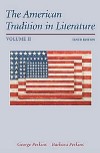Mark Twain's works are usually categorized as "realistic" in subject and treatment as opposed to the "romantic" literature that he often found insipid and sentimental. Most of his renowned works are pointedly critical of social injustice, political and corporate chicanery, and imperialism-domestic and abroad. Often criticized, for example, Adventures of Huckleberry Finn is not so much a "racist book" as it is a "book about racism." Life on the Mississippi contains Mark Twain's rich reminiscences about the short period of time he spent as a steamboat pilot just before the outbreak of the Civil War, which shut down all traffic up and down the river. In the book, he blamed the South's affectations and enthusiasm for the writings of the British romantic, Sir Walter Scott, for starting the whole American conflagration. Mark Twain's earliest writings drew heavily upon the conventions of literary humor, particularly that of the American West and Southwest. His "sketches" were often embellished tales, taken straight out of the oral tradition, as was his first nationally acclaimed short story, "The Notorious Jumping Frog of Calaveras County." His ironic, playful, and humorous vision targeted many of the foibles of his fellow Americans, both at home and abroad, particularly noteworthy in The Innocents Abroad and Roughing It, and his sometimes sardonic wit brought him early fame. Much of Mark Twain's more somber literature came from a deep brooding, late in his life, about bigotry, racism, corruption, and shallow, unquestioned articles of faith, both religious and political. "The Man That Corrupted Hadleyburg" attacks human greed and the lengths to which the seemingly most well-meaning and respected people can be corrupted in the quest for wealth. What is Man? and the 1973 collection of his posthumous works, Fables of Man, include his sharp and bitter attacks on conventional religious beliefs and the contradictions of religious hypocrisy. |



 2003 McGraw-Hill Higher Education
2003 McGraw-Hill Higher Education